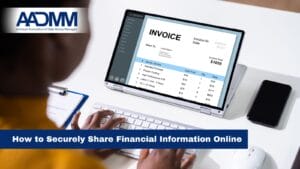Let’s start the year organized!
- January 1– First day to fund traditional IRAs, Roth IRAs and SEP IRAs (for self-employed and small business owners) for the current year
- January 15 – 4th quarter estimated taxes are due!
Revisit your budget (spending plan) or create a new one. January is a great month to assess spending and determine if an adjustment will help you meet your financial goals.
Here are some suggestions to get organized.
1. Sort Mail as Soon as it Arrives
- Toss junk mail.
- Shred sensitive documents.
- Separate out bills and keep them all in one place, such as in basket or tray.
- File away any documents that you need to keep.
2. Create A Filing System
- Use a filing cabinet or electronic system. Either is fine as long as you use it and it gives you quick, consistent access to information.
- If using a filing cabinet, consider labeling 4 drawers: Tax and Legal, Medical, Household, Financial
- If using an electronic system, create master folders, similar to the four cabinet drawers with subfolders (for example, under Financial Information, you would have subfolders for each bank, credit card and broker account).
- Shred receipts you do not need, especially those that include a barcode.
- Keep your pay stubs until you receive a W-2. Also keep the last paystub of the year as there could be useful information to prepare your tax return (e.g. donations made or dues paid).
- Keep tax related documents separate, so you have them together at year-end (eg. donation receipts, medical bills, taxes paid, sale of stock. Remember most pharmacies can provide you with a yearly report of the out of pocket costs you paid for your prescriptions, so you don’t need to keep individual receipts).
- Keep business or rental property related documents separate.
3. Create A Checklist of Bills
- Use a calendar or list so you don’t miss a payment. Don’t forget to list the bills that are not monthly, such as quarterly insurance or property taxes.
- Ask your utilities and credit cards to change your billing day to match your preferred payment schedule.
- Consider putting regularly recurring bills (such as cell phone or cable) on auto payment on a credit card or use automatic bill payments with your bank account. Be sure to check that they are paid each month and the amount is as expected. Ask for discounts for auto payment. Some companies give discounts for electronic billing and automatic payments.
Share this story











